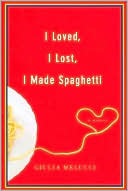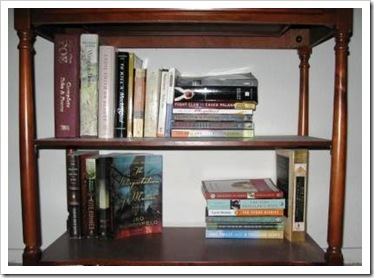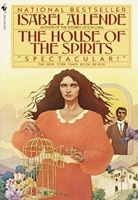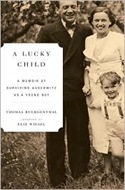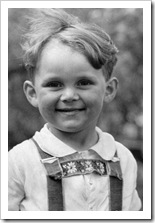Review: I Loved, I Lost, I Made Spaghetti by Giulia Melucci
I Loved, I Lost, I Made Spaghetti by Giulia Melucci
Scheduled Release Date: April 8, 2009
Non-Fiction (Memoir), 288 pages
Grand Central Publishing
Advanced Reader’s Copy provided by:
Hachette Book Group, Inc.
Synopsis:
Giulia Melucci tells her story of romances gone bad and recipes done well. Along the way she shares mouthwatering recipes and her musings on why she is so good at something she loves while not so good at love itself.
I would’ve used the synopsis off the back cover, but I didn’t particularly care for it. I know the publisher is trying to get the reader to open her up, go for a test drive, and buy the book, but on this occasion it was a bit much. For some reason Billy Mays’ voice kept leaping into my head each time I read it.
To be honest, I had a hard time writing this review. I kept wondering if the issues I had while reading this were strictly mine, the format, or the tone. I’ve come to the conclusion it’s a little bit of all three.
Not that this is a bad read – it really isn’t. However the flow of the story is continually interrupted by the placement of recipes. Every time the author remembers one from her childhood, or when trying to impress or de-stress, it was inserted immediately into the narrative. It’s very distracting.
There were also some style issues. The author writes well: however in the beginning, and in a few instances later on, the writing is a bit clunky and not well formed. Of course, this being an ARC, it is entirely possible these items will be smoothed out in the finished book.
But there are some gems:
Though my perception of Kit throughout the four years we were together remained as distorted as it was the day after our first date, when it came to putting distance between us, he met me halfway.
Even with statements like this, she never garnered much feeling from me. Not that this is the goal of the book. She just didn’t share anything in her remembrances or insights that resonated strongly with me. More often than not, I just wanted to shake some sense into her. I have to say though, I did enjoy her sense of humor, especially when naming some of those recipes – and the directions given for them.
When I finally finished, I was left with an undecided attitude about whether or not I really liked what I’d read. It’s so strange to feel this way. I don’t hate the book, but I can’t say it thrilled me all that much either.
At the time of this post, there weren’t many reviews out there for me to determine if I’m much off the mark about my feelings for this memoir. From what I was able to find, most have given this the same rating I had decided on before doing any research.
Thus, I am giving it 2 Stars as it did need a little effort to finish due to the constant breaks in the narrative. However, at only 288 pages, this would be a good book to take on a weekend retreat. Maybe a spot with a well equipped kitchen as I can tell you, some of the recipes are very tempting.
Giulia Melucci was born and raised in Brooklyn, New York. She is the former Vice President of Public Relations for Harper’s Magazine. She graduated from Sarah Lawrence College in 1988 and has been employed in publishing ever since. I Loved, I Lost, I Made Spaghetti is her first book.

